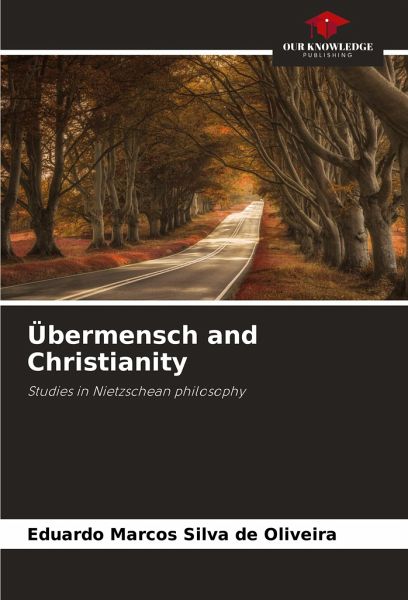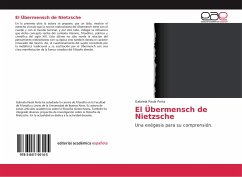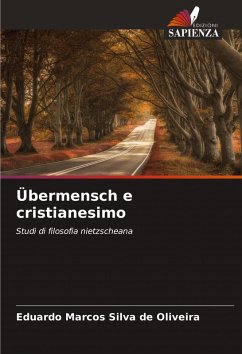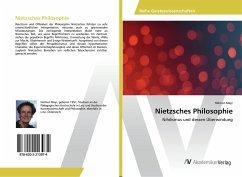
Übermensch and Christianity
Studies in Nietzschean philosophy
Versandkostenfrei!
Versandfertig in 6-10 Tagen
36,99 €
inkl. MwSt.

PAYBACK Punkte
18 °P sammeln!
Nietzschean philosophy was structured in a different way in the process of understanding the human being in the face of interpretations of human life led by a Christianised domination. According to the theoretical framework that we will use in this study, in the face of the concepts of the formation of the Western world, man is moulded by a Socratic-Platonic-Christian morality focused on the principle of conservation. This demonstrates a dependence, albeit distorted or unconscious, on the principles and values of Christianity. What is objectively evident in Nietzsche's critique of Christianity...
Nietzschean philosophy was structured in a different way in the process of understanding the human being in the face of interpretations of human life led by a Christianised domination. According to the theoretical framework that we will use in this study, in the face of the concepts of the formation of the Western world, man is moulded by a Socratic-Platonic-Christian morality focused on the principle of conservation. This demonstrates a dependence, albeit distorted or unconscious, on the principles and values of Christianity. What is objectively evident in Nietzsche's critique of Christianity is his refutation of the erroneous historical-psychological interpretation of Christianity that formulated the cultural identity of Western society. From this observation, we highlight that this occurrence was characterised, in a way that emphasised the domination of Christianity, in a clear manifestation of creation and destruction, affirmation and denial of values, this being one of the "great nihilistic movements" of Western culture. And within this context, Nietzsche presents his proposal for the beyond of man as a goal to be achieved.














